
Sorry, Fraser Institute: people working minimum wage are not “affluent” teenagers
Here's a tone-deaf argument for not giving Canada's lowest-paid workers a raise.
Here’s a tone-deaf argument for not giving Canada’s lowest-paid workers a raise.
According to a new report from the Fraser Institute, a right-wing think tank full of experts who doubt climate change science and want to drive down wages for first responders who “go running into burning buildings,” Canadians should reject proposals to raise the minimum wage because it will help teenagers from “affluent families.”

“Minimum wage earners in Canada” are “not who you think,” the Fraser Institute warns.
Minimum wage workers are mostly “teenagers or young adults aged 15-24” who live “with their parents or other relatives” the Fraser Institute says, a point they decided to visualize with this cartoon of a teenager lounging in front of a TV in their parent’s basement:
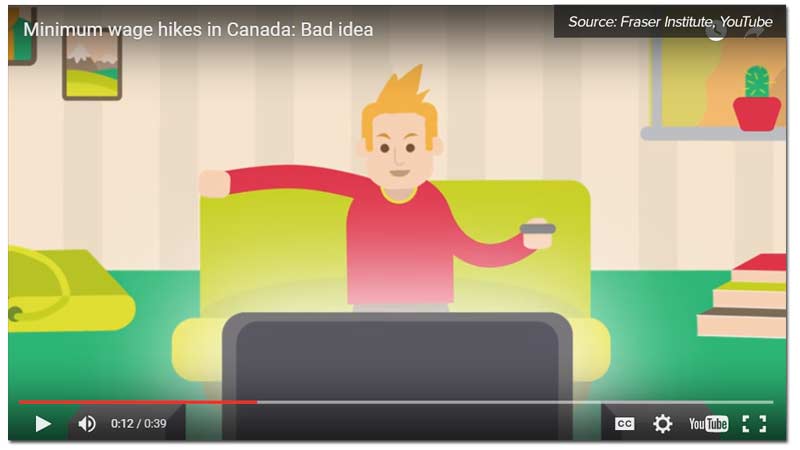
“There are many minimum-wage earners (such as teenagers) who come from affluent families,” the report states, “meaning middle- and upper-income people would receive some of the benefits” from “raising the minimum wage.”
And what evidence does the Fraser Institute supply to support this cartoonish image?
Well, they say 56.8% of minimum wage workers live with their families. And they say 9 in 10 minimum wage workers live in households that are above the Low Income Cut-Off (LICO), “a widely used measure of relative poverty” that Statistics Canada says is actually “not” a completely accurate measure of “how poverty should be defined.”
So obviously that means they’re mostly “affluent” teenagers, right?
Nope.
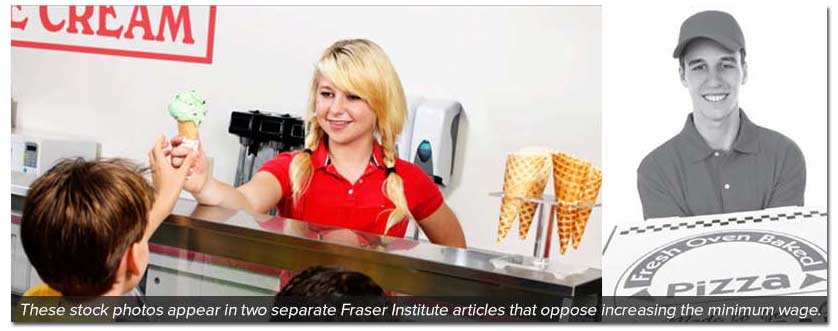
For one thing, the LICO is very low: Fraser Institute’s own numbers work out to annual after-tax incomes ranging from $19,774 for one-person households to $29,968 for three-person households in large cities. Despite the impression the Fraser Institute leaves, that’s not exactly “affluent.”
For another thing, some minimum wage workers counted as living with their families are actually middle-aged, others are married. And the Fraser Institute doesn’t seem to consider the possibility people could find themselves in these living arrangements because their wages are so low.
Statistics Canada’s 2015 Labour Force Survey shows less than one-third (32%) of all minimum wage workers in Canada are between 15-19 and live with their parents – not quite the “vast majority” the Fraser Institute suggests.
Looking at Canada’s entire minimum wage workforce, 36% of minimum wage workers are teenagers and another 23% are young adults.
The report doesn’t have much to say about hundreds of thousands of minimum wage workers (41%) who are 25 and older and don’t exactly line-up with the cartoonish pictures drawn by the Fraser Institute:
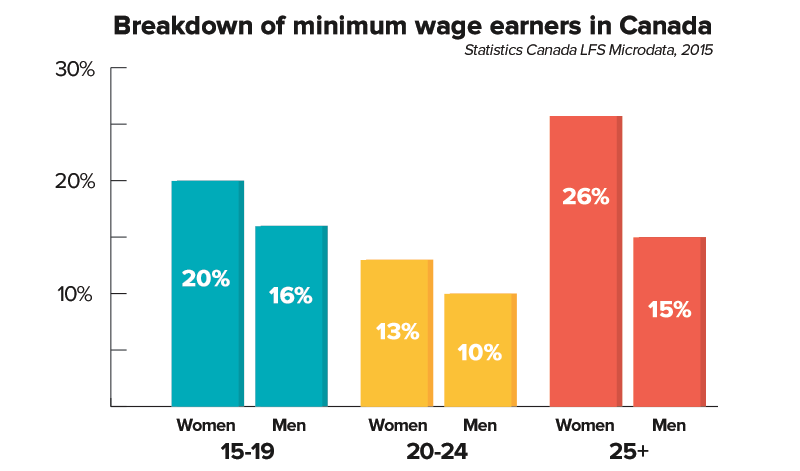
And that picture looks different when you consider other workers in low-wage jobs who would benefit from minimum wage increases.
Among workers who only earn up to a dollar or so above the minimum wage, less than one-third are teenagers and close to half are 25 and older:
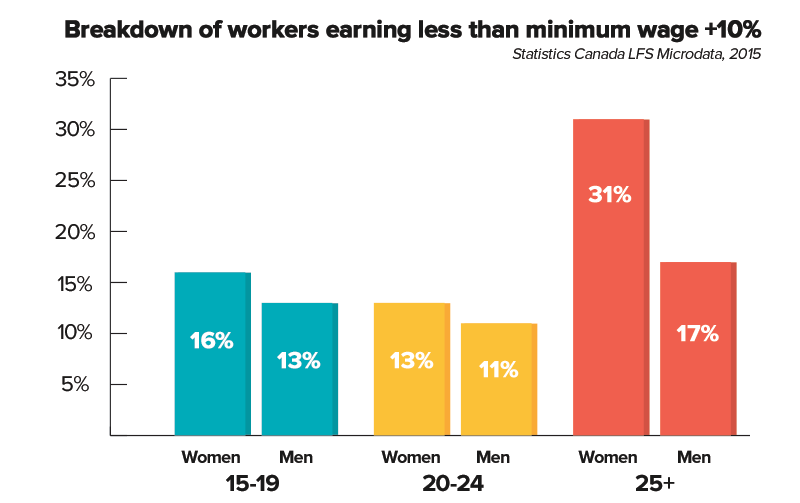
That gap grows when you look at workers earning less than $15.
Only 18% of workers earning less than $15 are teenagers, 13% are young adults and the remaining 59% are 25 and older:
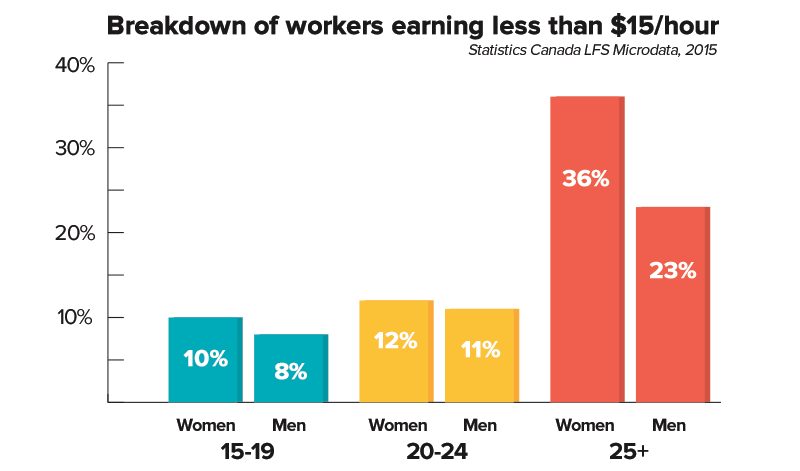
In other words, if the minimum wage was raised to $15/hour, the vast majority who would see a raise are not teenagers, they’re 25 years and older.
But please don’t tell the Fraser Institute – you might interrupt their cartoons.
Photo: Pixabay, Freefoto. Used under Creative Commons license. Fraser Institute.
Our journalism is powered by readers like you.
We’re an award-winning non-profit news organization that covers topics like social and economic inequality, big business and labour, and right-wing extremism.
Help us build so we can bring to light stories that don’t get the attention they deserve from Canada’s big corporate media outlets.
Donate




